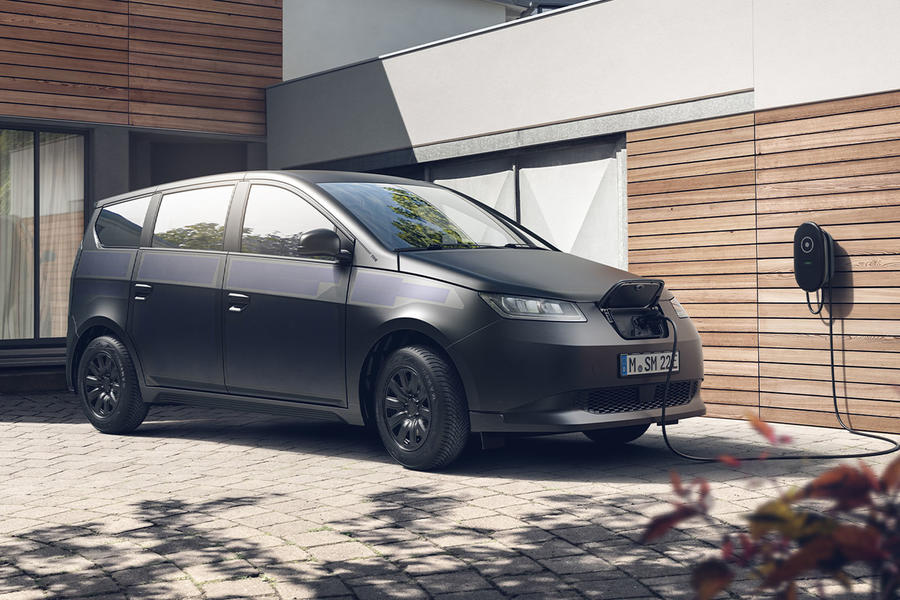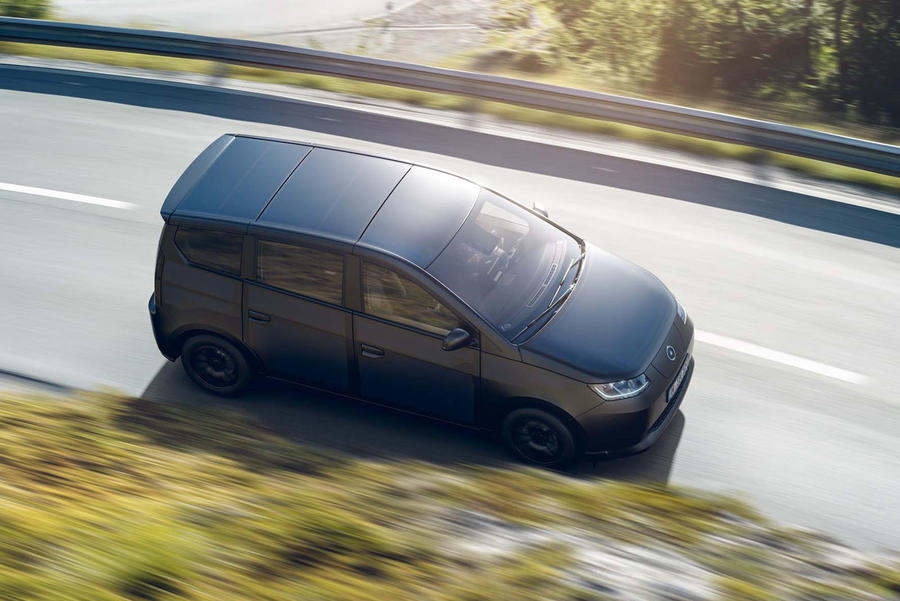Sono Sion uses photovoltaic body panels to top its battery up passively
Sono Motors, prospective maker of the Sion, admits it has failed to raise enough funding
Sono Motors may scrap its solar car project, the Sion, due to a lack of investment.
The German start-up today launched a crowdfunding campaign with a bold statement on its website admitting that it had failed to raise enough funding for the project.
Jona Christians and Laurin Hahn, Sono’s co-founders and joint CEOs, cited the global economic downturn as the cause of its struggles.
“As a result, financing our Sion program through equity has become increasingly challenging and dilutive,” they said in a statement.
“Raising money takes much longer than expected, since we failed to explain to investors why the Sion has the potential to become the world’s first affordable solar electric vehicle and that there’s a huge demand for it.”
The Sion is a five-seat MPV with bodywork uniquely constructed from solar panels. Sono claims this allows it to harvest up to 245km (152 miles) of range weekly. It can also tap into conventional Type 2 and CCS car chargers to top up.

The Sion was originally planned for launch at a starting price of €12,000 (£10,800 in 2016), which has since been raised to €25,500 (£21,700 in 2020) and now €29,900 (£25,800).
Sono claims that investors advised it to restructure to focus on its solar panel business, lay off 70% of its staff and refund Sion reservation holders.
“We understand the market situation, and we could streamline our business for the long-term prosperity of our company,” said Christians and Hahn. “But before making any decision to stop the Sion programme, we want to give our community – who amount to over 21,000 Sion reservation holders – a chance to keep the Sion programme alive and partly solve our funding hurdle.”
As such, Sono has set a target of 3500 additional reservations for the Sion by 27 January 2023. Early adopters will get benefits including discounts between €500 (£430) and €3000 (£2585) on the car plus a fixed place on the waitlist.
If the project survives, the Sion will be built at the former Saab factory in Trollhättan, Sweden – currently operated by NEVS – ahead of 2024 deliveries.

At the time of writing, Sono has secured five new reservations.
There’s clearly some appetite for investment in solar EVs, as Dutch firm Lightyear announced in September that it raised an additional €81 million (£70m) of investment.
In 2020, Sono crowdfunded more than €50m (£42.5m then) with the intent of beginning Sion deliveries in early 2022. Three-quarters of the funding came from pre-orders, 19% from investors and the remaining 6% from donations.
The company recorded a €43.5m (£37.5m) loss during the third quarter of 2022, citing an “intensified prototype programme and preparation for series production”.
Since Sono began public trading in 2021, its stock’s value has fallen from the launch price (and peak) of $24.80 (£20.30) to $1.17 (£0.96) at the time of writing.
Source: Autocar